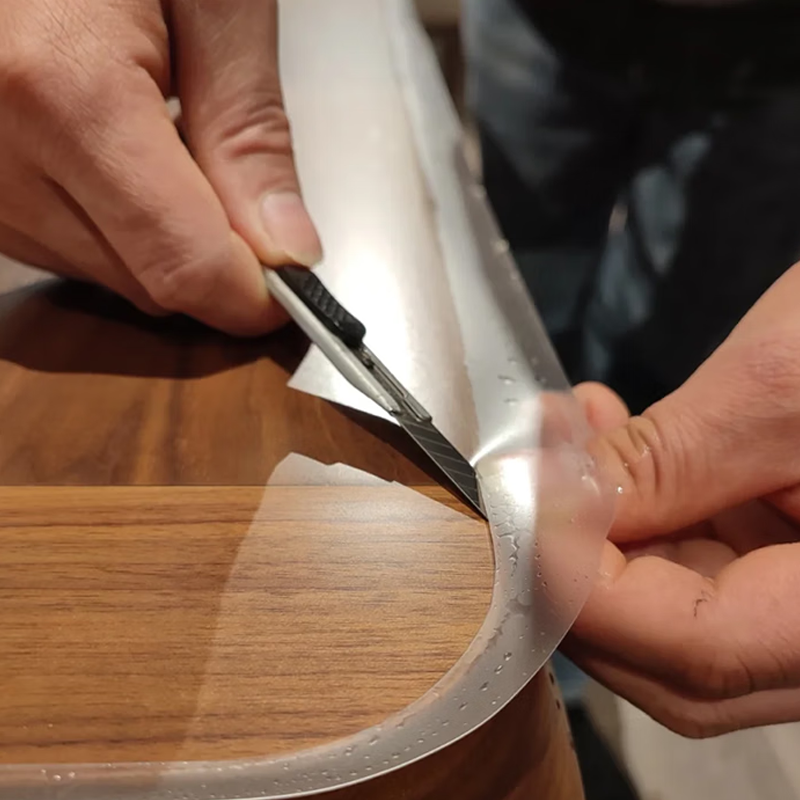In today’s world, sustainability is at the forefront of consumer preferences, especially when it comes to home furnishings. As we aim to create more eco-conscious living spaces, protective solutions for furniture are taking a turn toward greener alternatives. One such innovation is the use of Thermoplastic Polyurethane (TPU) films—an eco-friendly and effective solution for furniture protection. TPU film, a highly durable and flexible material, provides a sustainable way to safeguard furniture while maintaining an environmentally responsible approach. As more consumers seek eco-friendly options, the demand for furniture protective film made from TPU continues to grow, offering a practical and sustainable choice for modern homes.
Understanding the Environmental Impact of Protective Films
Biodegradability and Recyclability of TPU Materials
Certifications and Standards for Eco-Friendly Products
Consumer Demand for Sustainable Furniture Solutions
Understanding the Environmental Impact of Protective Films
Traditional furniture protection methods often rely on materials that are not biodegradable or recyclable, contributing to environmental pollution. TPU films, however, stand out as a sustainable alternative. These films offer superior protection against stains, scratches, and wear, without the harmful effects associated with plastic-based solutions. TPU is not only durable but also flexible, offering a level of versatility that fits various furniture types.

The real advantage, however, lies in the environmental impact. TPU is a thermoplastic material, which means it can be melted and reformed multiple times without losing its properties. This recyclability reduces waste and encourages a circular economy in furniture production and maintenance. Furthermore, TPU films do not release toxic chemicals into the environment, unlike some other protective solutions made from PVC or polycarbonate materials.
Biodegradability and Recyclability of TPU Materials
One of the key selling points of TPU films is their biodegradability. Unlike many conventional plastic films, TPU materials are less harmful to ecosystems. When disposed of properly, they break down more quickly than traditional plastics, significantly reducing long-term environmental impact. Moreover, TPU can be recycled, providing another layer of sustainability to its life cycle. By choosing products made from TPU, manufacturers and consumers alike contribute to the reduction of non-biodegradable waste that often ends up in landfills or oceans.
Certifications and Standards for Eco-Friendly Products
For consumers and businesses looking to make environmentally responsible choices, certifications play an essential role. TPU films, especially those designed for furniture protection, often carry certifications such as the Global Recycle Standard (GRS) or Oeko-Tex Standard 100, which ensure that the products meet strict environmental and safety standards. These certifications guarantee that the TPU films are free from harmful substances and have been produced with sustainability in mind.
Moreover, these certifications help to build consumer trust. As more people seek products that align with their values of sustainability, having official endorsements from recognized authorities can significantly influence purchasing decisions. By investing in certified eco-friendly TPU films, manufacturers and consumers alike are making a commitment to a healthier planet.
Consumer Demand for Sustainable Furniture Solutions
As awareness of environmental issues grows, so does the demand for sustainable furniture and related products. Consumers are no longer willing to compromise on style or quality when it comes to eco-friendly solutions. The demand for protective films that are both functional and environmentally responsible is on the rise. Manufacturers are responding to this trend by incorporating TPU films into their product lines, offering consumers an eco-conscious choice without sacrificing durability or design.
By choosing TPU for furniture protection, consumers not only preserve the longevity of their furniture but also contribute to a broader movement toward a more sustainable future. This growing demand for sustainable solutions highlights the importance of innovation in eco-friendly materials and practices within the furniture industry.
Implementing Green Practices in Furniture Manufacturing
The shift toward sustainability in the furniture industry is not limited to consumer products. Manufacturers are increasingly adopting green practices across their operations, from sourcing raw materials to production methods. By integrating TPU films into their protective product offerings, manufacturers are making strides toward reducing their carbon footprint and promoting sustainability in their production processes.
Implementing green practices goes beyond using eco-friendly materials. It involves rethinking manufacturing techniques, minimizing waste, and ensuring that products are designed for recyclability. Furniture companies that embrace these principles are setting themselves apart in an increasingly competitive market, appealing to consumers who value sustainability.
In conclusion, the sustainable edge of TPU films offers a smart, eco-friendly solution for furniture protection. Their biodegradability, recyclability, and the growing demand for green practices ensure that TPU films are not just a passing trend, but a long-term commitment to preserving the planet. By integrating TPU into furniture production, both manufacturers and consumers can play an active role in building a more sustainable future for the home furnishing industry.
Post time: Apr-29-2025





